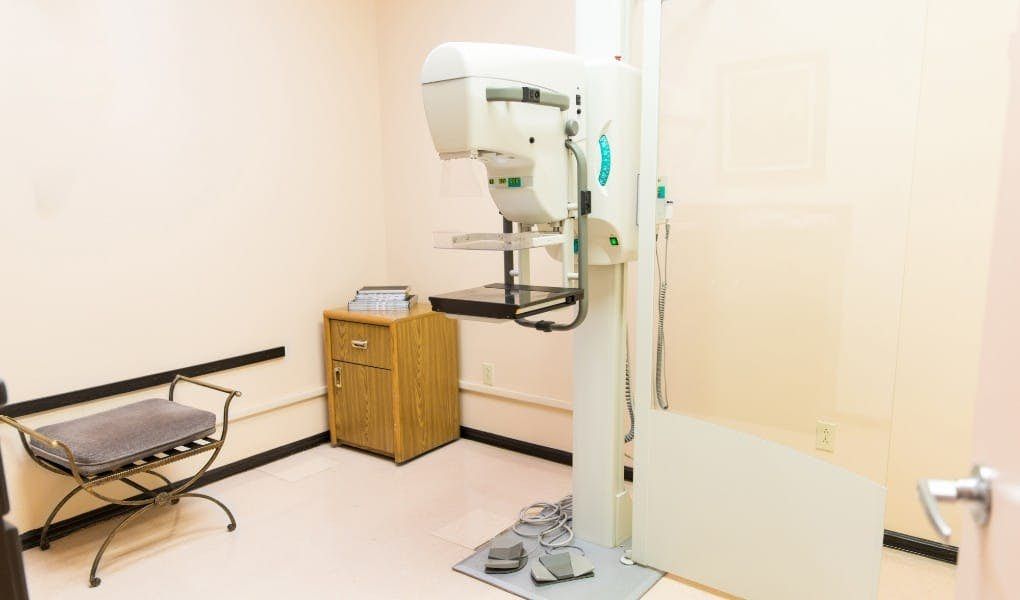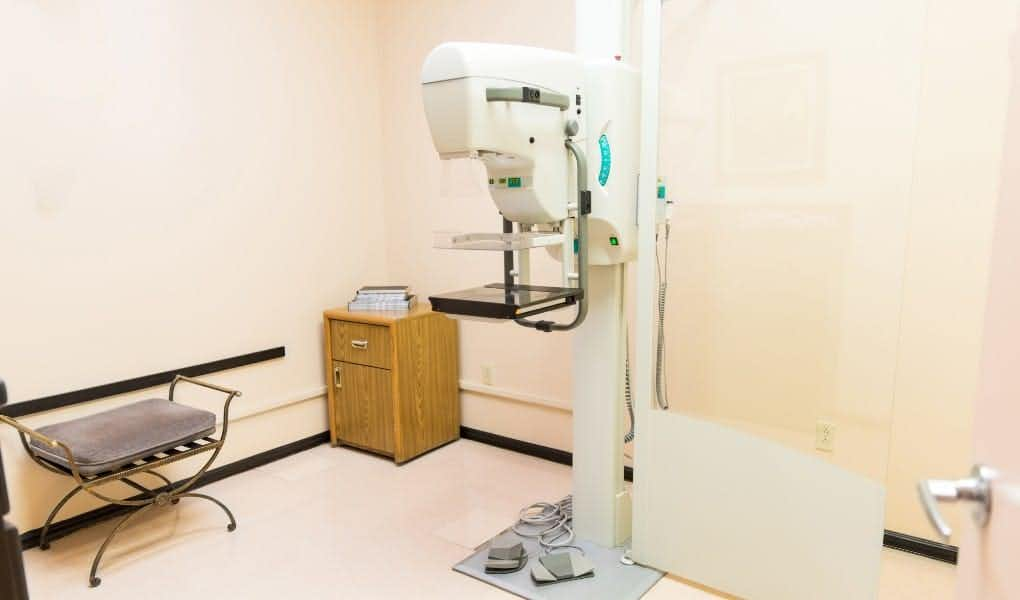Case Overview
Case Name: Lisa Leval and Gerard Leval v. Washington Radiology Associate, P.C., Gary Rose, M.D., and Ingrid L. Ott, M.D.
Case Type: Medical Malpractice – Failure to Diagnose
Injury:
- Tumor
- Neuropathy
- Metastatic disease
- Cancer – chemotherapy; breast; metastatic
- Neurological – neurological impairment; peripheral neuropathy
Plaintiff Attorney: Sidney Schupak; The Schupak Law Firm LLC
Defense Attorneys:
- Stephen L. Altman; Altman Spence Mitchell & Brown for Washington Radiology Associates, P.C., Ingrid L. Ott, M.D.
- Andrew J. Spence; Altman Spence Mitchell & Brown; Rockville, MD for Washington Radiology Associates, P.C., Ingrid L. Ott, M.D.
Case Outcome: Verdict – Plaintiff
Award Amount: $14,350,000
What Happened?
Lisa Leval, a CPA in her 30s, had a routine mammogram to screen for breast cancer in May 2011. A mammogram is a picture of a breast that medical technicians create using a special X-ray machine. Doctors review mammograms to detect early signs of breast cancer. With this technology, doctors can sometimes find breast cancer up to three years before it can be felt. Washington Radiology Associates, P.C. performed Leval’s mammogram in 2011. Ingrid L. Ott, M.D. reviewed the mammogram results and determined there was nothing suspicious. Ott informed Leval of her finding.
Over two years later, in August 2013, Leval returned to Washington Radiology Associates. She told the doctors that she had been experiencing pain in her breasts. The medical team examined Leval and conducted a mammogram on her. After finding a lump in her right breast, doctors let Leval know the devastating news that she had stage IV ductal carcinoma that had metastasized in her spine.
The Plaintiff’s Breast Cancer
Invasive ductal carcinoma, also sometimes called infiltrating ductal carcinoma (IDC), is a very common form of breast cancer. About 80% of breast cancer diagnoses are ductal carcinoma. With IDC, abnormal cells grow in the lining of the milk duct and invade breast tissue outside the duct. Without proper treatment, cancer can break into the lymph nodes or bloodstream and spread to organs and other body areas. Leval’s stage 4 diagnosis meant her cancer had spread to other areas of her body—in her case, the spine. The Stage IV diagnosis meant Leval’s cancer was not curable. However, treatment options can extend a patient’s life for several years.
There was more bad news for Lisa—she had HERS2-positive breast cancer. HER2-positive breast cancer indicates that the cancer has tested positive for a human epidermal growth factor receptor 2 (HER2) protein. The protein promotes cancer cell growth, making this type of cancer more aggressive than others.
Chemotherapy & Extremity Injuries
After the diagnoses, Leval began a regime of ongoing chemotherapy treatment. As a Stage IV patient, Leval required chemotherapy treatments every three weeks. She endured this treatment for six years leading up to the trial. Leval’s HERS2-positive cancer was also treated with specific medicines and protocols.
The constant chemotherapy sessions left Lisa with peripheral neuropathy in each of her extremities. Peripheral neuropathy happens when infections, toxins, or other conditions damage the nerves in the peripheral nervous system. The nerve damage can result in weakness, numbness, and pain—typically in the hands and feet—but can also harm digestion, urination, and circulation functions. Patients with this condition describe stabbing, burning, or tingling pain.
Allegations and Testimony
Leval and her husband, Gerald Leval, filed a lawsuit against Ingrid Ott, Washington Radiology Associates, and Gary Rose, M.D. They alleged that the defendants’ failure to diagnose her breast cancer in 2011 amounted to medical malpractice. After Dr. Rose’s lawyers showed that he was not liable, this defendant was dismissed from the case.
Dueling Experts on Mammogram Evidence
In the four-week trial concerning Ott’s and Washington Radiology Associates’ culpability, Lisa contended that the tumor ultimately found in her breast in 2013 was present in the 2011 mammogram and that Ott had missed it. This failure allowed her cancer to spread, resulting in her reduced life expectancy.
Defense and plaintiff experts dueled in front of the jury on the issue of suspicious cancer indicators in the 2011 mammogram. Leval’s radiology expert testified that he saw evidence of a “fine linear branching calcification” in the mammogram that he deemed highly suspicious. In his experience, a calcification like the one he saw in Lisa’s results demonstrates a 70% predictive value for cancer presence.
The defense maintained that Lisa’s cancer was unrelated to the 2011 mammogram where Dr. Ott’s finding was benign. In the defense’s view, Leval’s cancer had developed after the 2011 mammogram before she came into Washington Radiology Associates for the 2013 exam. According to the defense radiology experts’ testimony, there was no branching calcification present in the 2011 mammogram. In this expert’s view, there was nothing for Dr. Ott to miss in her review of the mammogram.
The Plaintiff’s Life Prospects
The jury heard testimony from Leval’s life care planning expert establishing that Lisa was expected to live until 2023—10 years from the date of the 2013 Stage IV cancer diagnosis. Experts also proffered their opinions that Leval would require ongoing care for the rest of her life.
Lisa testified that the cancer had impacted her entire life. The peripheral neuropathy causes her pain in all her extremities. She indicated that she can hardly move without experiencing pain.
For these injuries, Leval asked for noneconomic damages and past and future medical bills compensation. Gerald Leval wanted loss of consortium compensation.
Who Won the Case?
After two days of deliberation, a unanimous jury found that Ott and Washington Radiology Associates committed malpractice when they failed to diagnose Lisa Leval’s cancer. The jury awarded Lisa Leval $14.3 million. Greg Leval received $50,000 in damages for the future loss of consortium with his wife.
Lisa Leval’s damages broke out as follows:
- $7,500,000 for past pain and suffering
- $2,500,000 for future pain and suffering
- $4,300,000 in economic damages
Expert Specialities
The plaintiffs retained expert witnesses in:
The defendants retained expert witnesses in:
- Plastic Surgery/Reconstructive Surgery
- Oncologic Surgery
- Radiology
- Diagnostic Radiology
- Oncology
Key Takeaways
This case is a reminder that malpractice lawyers will prevail in cases when they can prove a doctor failed to sufficiently scrutinize mammogram results to detect evidence of the presence of cancer. Showing that a radiologist did not review results with a keen enough eye will help a jury understand the facts of what happened. To do this in the technical field of radiological reviews for cancer, you will need the support of high-caliber radiology experts.
As the Leval case shows, no amount of expert testimony simply denying the presence of cancer indicators will overcome a reputable expert’s testimony that when he or she reviewed the same mammogram, they saw fine branches of calcification. Moreover, the plaintiff’s expert testimony that the evidence they saw typically indicated a 70% chance of the presence of cancer likely was a big influence on the jury holding the defendants accountable for Leval’s terminal cancer.




